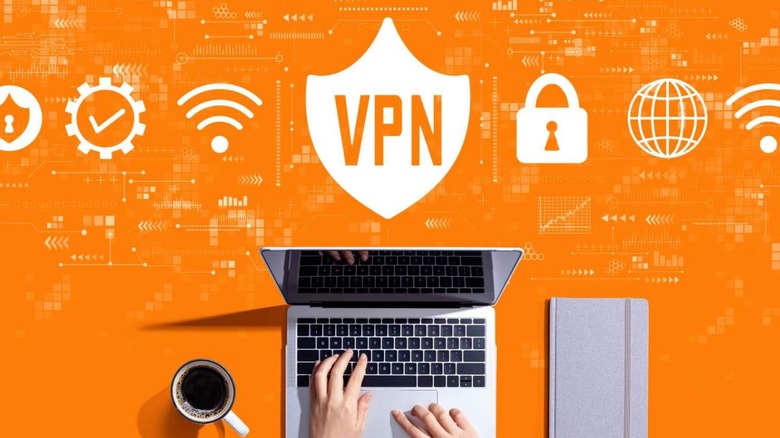What's The Difference Between A VPN And A Proxy
Online privacy is gaining more attention than ever before, with users turning to a variety of tools and services to protect themselves online (via Security Magazine). Edward Snowden shocked the world in 2013, The Guardian notes, when he disclosed the extent of governments' mass surveillance programs, many of which were used on their own citizens. Consumers have become warier of Big Tech and, in particular, how Big Tech profits off of its users' data.
As a result, consumers are turning to various options to help them keep their data private and secure. Virtual private networks (VPNs) and proxies are two popular options that, while similar, offer very different types of protection. In fact, in 2020, some 49% of people said they used a VPN. While that number was down in 2021, due to more people staying at home because of the pandemic, some 41% still used a VPN (via Security.org).
Since a VPN and a proxy are similar in nature, many wonder what the difference is between the two.
VPNs vs. proxies
Both VPNs and proxies work by routing your internet traffic through a third-party service's servers and network, Cyber News notes. Routing traffic through a third-party limits how much information websites can discover about you. For example, when you visit a website using one of these tools, the website doesn't see your IP address. Instead, it only sees the IP address of the proxy or VPN you're using.
According to NordVPN, one of the most respected VPN makers, that's largely where the similarity ends. A proxy works on the application level, meaning that an application, such as a web browser or email client, can be configured to access the internet via a proxy. In contrast, a VPN works at the system level, meaning all traffic is routed through the VPN.
Another major difference is encryption. Unlike a proxy, a VPN encrypts all traffic (via Security.org). As a result, it is virtually impossible for anyone to see your internet activity. Not even your ISP can see what you're doing. Instead, your ISP will only see that you are connected to a VPN. As a result, a VPN can be a useful tool in circumventing censorship, bypassing regional restrictions, and avoiding ISP throttling.
While proxies and VPNs have some similarities, VPNs are the clear choice if you want to protect your privacy and online security.

